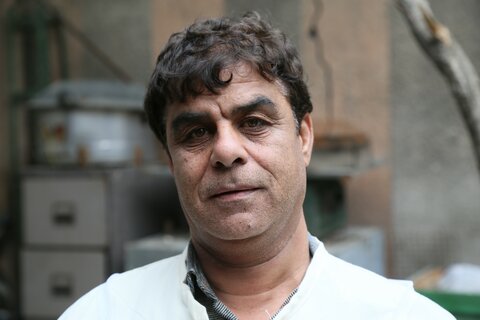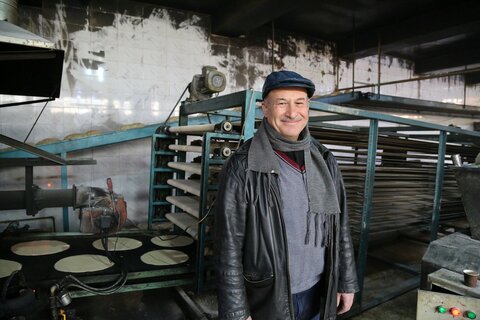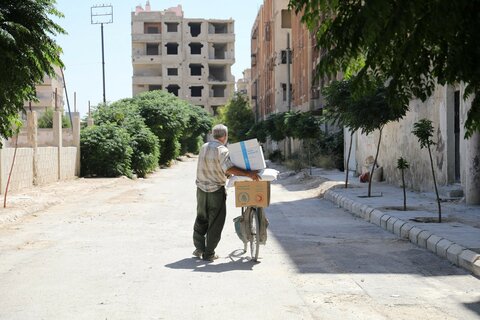Women uniting to grow and sell food in Syria declare: 'We are the difference'
The most delicious food is usually the kind that is made by experienced hands. Vegetables that were picked from a garden that where they have grown for years. Fresh food cut on an old wooden chopping board and served on a table filled with family and friends.
After being friends, neighbours and farmers for years, five women in Tartous, Syria, decided to come together and start their own business. After just a few months, Abeer, Ghada, Heyam, Radha and Samira are already harvesting, preparing and selling preserved foods made from vegetables they grow themselves. Their customers are members of their community, their dishes are whatever is in season and their recipes are the ones their mothers taught them.
“I am obsessed with farming and like to feed people from what I produce in my garden,” says Abeer.

The World Food Programme (WFP) introduced food processing units across Syria to support food insecure and vulnerable families build businesses like that of Abeer and her friends. After farming individually for years, the women agreed to work together to establish one processing unit once they found out they were eligible to participate. Coming together meant they could receive the support they needed to start and grow their business, save time and improve the quantity and quality of their products.
“All of us used to work alone, which was time and effort consuming,” explains Ghada. “But after we all joined in this project, we managed to have more time to look after our families and at the same time we socialize together. We enjoy working together and have better income for all of us.”

WFP provides groups of five families across Syria with the skills and tools that they need to launch their businesses. People receive basic equipment and training in food production, food safety, financial management and marketing. Each group also receives electronic vouchers to buy food from local stores for the first six months of the project. This helps them to cover their own needs until their project becomes productive.
The five women established the processing unit in Heyam’s house. The place smells of the wild herbs they use to flavour the food, and on the table the women have proudly placed some of their products. Pickled olives, cucumbers and capsicums are ready to be sold and can be eaten up to one year from now.

After spending time with the women, it’s clear who has taken charge of the group. Radha is the oldest, and also the loudest. She has been a farmer her whole life and says she learned everything about organic farming from her husband.
“I live alone after my husband died last year,” she explains. “I raised seven children and all of them hold university degrees and live in different governorates based on their jobs needs.” She said the group had provided her with a chance to earn an income, as well as a strong social connection.

“I am so happy that I joined this project, because I feel that I have a role to play in the community, it gave me this amazing feeling,” says Radha.
“If we buy any items from places that are far away, this will require transportation fees. Then we will not be able to compete and most likely we will lose money. We depend on the produce in the village that has a very good reputation in the whole governorate for being free from chemicals and irrigated with clean water.”
The group’s entire business model is based on word of mouth, she explains: “We could bring our products to the markets in Tartous city, which theoretically will increase demand. But this means we will have to add the cost of transportation.” By selling locally, they can keep their costs low while giving their business some time to grow.

All five women admit there are challenges when trying to bring food from their own farms to people’s tables. Syria’s economy is rapidly deteriorating after a decade of conflict. Food and fuel prices have soared and daily life is now harder than ever for the majority of families. Main challenges are lack of gas, unpredictable levels of electricity rationing and high costs of transportation.
The women are doing all they can to adapt. They prepare dairy products only on demand, use wood instead of fuel for cooking, and produce dried and preserved foods that last longer.
“We were very determined not to let anything prevent us from producing food and generating an income,” adds Rahda. “Our ancestors didn’t have gas to produce food, or electricity to preserve it. We learned from them these methods and now it has helped us.”
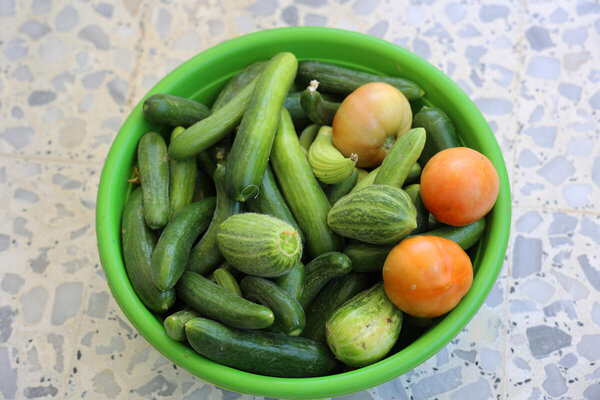
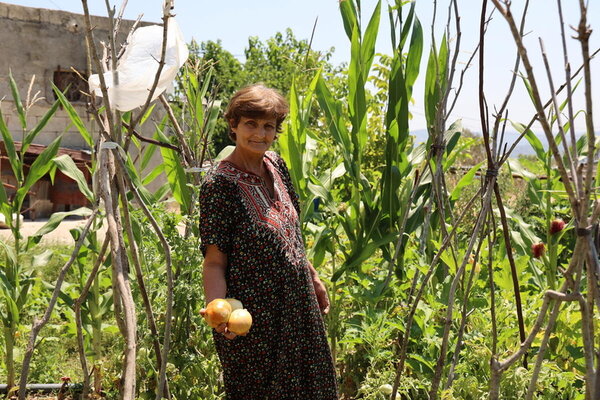
The group have started to earn a small income, which they use to support their children, pay for medical expenses and meet other basic needs.
When asked about what makes their food so delicious, Radha replies: “We are the difference. We are mothers, not machines. When we prepare the food, we think of our children eating it and we select each item with love and care. This is our secret.”
WFP has supported the creation of over 220 food processing units across Syria, helping 1,100 people to earn an income. The groups produce a wide range of products including jams, pepper pastes and dairy. More than 90 per cent of participants are women, who are working to build sustainable sources of income and who in turn re-invest funds in their local communities.
Ten years into the crisis in Syria, levels of food insecurity are the highest ever recorded. WFP’s processing units are estimated to have dealt with over 5,000 tons of vegetables, fruits and dairy products. They play an important role in enhancing food systems at the community level, by transforming food into a product that can be stored long-term to help families meet their needs year-round.

